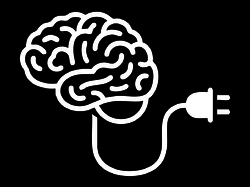Consider, for example, the “innovation” known as Gas Station TV—that is, the televisions embedded in gasoline pumps that blast advertising and other pseudo-programming at the captive pumper. There is no escape: as the CEO of Gas Station TV puts it, “We like to say you’re tied to that screen with an 8-foot rubber hose for about five minutes.” It is an invention that singlehandedly may have created a new case for the electric car.
Attention theft happens anywhere you find your time and attention taken without consent. The most egregious examples are found where, like at the gas station, we are captive audiences. In that genre are things like the new, targeted advertising screens found in hospital waiting rooms (broadcasting things like “The Newborn Channel” for expecting parents); the airlines that play full-volume advertising from a screen right in front of your face; the advertising-screens in office elevators; or that universally unloved invention known as “Taxi TV.”
What to do about ad screens that are imposed on us in these captive scenarios? Wu suggests towns and cities have managed this problem before:
In the 1940s cities banned noisy advertising trucks bearing loudspeakers; the case against advertising screens and sound-trucks is basically the same. It is a small thing cities and towns can do to make our age of bombardment a bit more bearable.





